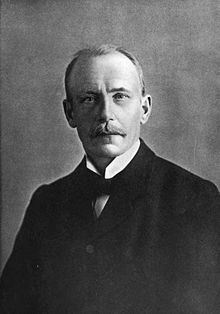Sydney Buxton, 1st Earl Buxton
|
The Right Honourable The Earl Buxton GCMG PC |
|
|---|---|
 |
|
| Postmaster General | |
|
In office 1905–1910 |
|
| Monarch | Edward VII |
| Prime Minister | Sir Henry Campbell-Bannerman H.H. Asquith |
| Preceded by | The Lord Stanley |
| Succeeded by | Herbert Samuel |
| President of the Board of Trade | |
|
In office 14 February 1910 – 11 February 1914 |
|
| Monarch | Edward VII George V |
| Prime Minister | H.H. Asquith |
| Preceded by | Winston Churchill |
| Succeeded by | John Burns |
| 2nd Governor-General of the Union of South Africa | |
|
In office 1914–1920 |
|
| Monarch | George V |
| Prime Minister |
H.H. Asquith David Lloyd George |
| Preceded by | The Viscount Gladstone |
| Succeeded by | HRH Prince Arthur of Connaught |
| Personal details | |
| Born |
25 October 1853 London, England, UK |
| Died | 15 October 1934 (aged 80) Newtimber, West Sussex, England, UK |
| Nationality | British |
| Political party | Liberal |
| Spouse(s) | Constance Mary Lubbock (1882–1892; her death); 3 children Mildred Anne Smith (1896–1934; his death); 3 children |
| Alma mater | Trinity College, Cambridge |
| Profession | Member of Parliament |
Sydney Charles Buxton, 1st Earl Buxton GCMG PC (25 October 1853 – 15 October 1934) was a radical British Liberal politician of the late 19th and early 20th centuries.
Buxton was the son of Charles Buxton and grandson of social reformer Sir Thomas Fowell Buxton, 1st Baronet. His mother was Emily Mary, daughter of the physician and traveller Sir Henry Holland, 1st Baronet. He was born in London and educated at Clifton College and Trinity College, Cambridge, and was a member of the London School Board from 1876 to 1882.
In 1880, Buxton became prominent in political circles by the publication of his Handbook to the Political Questions of the Day, a work which eventually went through 11 editions. That same year, he ran for Parliament for Boston, but lost. However, he became an MP in 1883 by winning a by-election in Peterborough. He was defeated in the 1885 general election, but returned to Parliament the very next year, representing Poplar. He would represent this constituency in Parliament until 1914.
From 1892-95, Buxton served as Under-Secretary of State for the Colonies. In 1905, he earned his first Cabinet post, that of Postmaster-General. In this capacity he introduced such services as penny postage to the United States, the Canadian magazine post, and cheap postage for the blind. In 1910, Buxton was named President of the Board of Trade; in this position he oversaw the passage or amendment of many trade and commerce laws. Upon the sinking of the RMS Titanic in 1912, he asked Lord Loreburn, the Lord Chancellor, to appoint a commission of inquiry into the disaster. This commission eventually came to be headed by Lord Mersey.
...
Wikipedia
